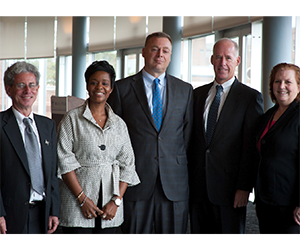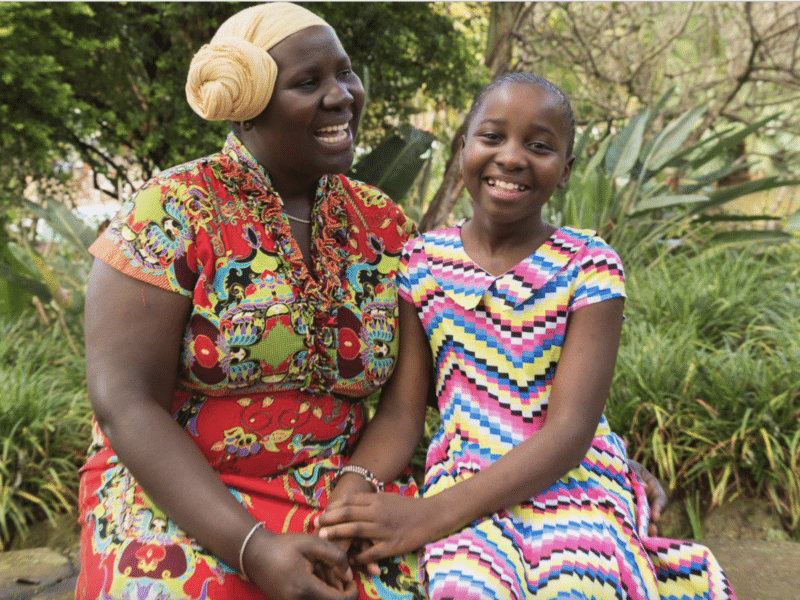Social enterprise may be the key to advancing malaria control and other public health initiatives in the global marketplace, according to a panel of experts jointly organized by the Johns Hopkins Bloomberg School of Public Health Center for Communication Programs (JHU∙CCP) and the Global Social Enterprise Initiative (GSEI) at Georgetown’s McDonough School of Business.
Titled “Responsible Bottom Lines: How Businesses are Saving Lives,” the event took place at Georgetown University on Monday, September 26, days after the United Nations General Assembly in New York.
Matt Lynch, director of CCP’s Global Program on Malaria and vice-chair of the Roll Back Malaria global partnership, participated on the panel of experts which addressed an audience of over 75 individuals from academia, business and development, sharing best practices that create social value and drive sustainable social change.
“Malaria control is good for business,” he said, citing programs in Africa that saw substantial cost savings and increases in productivity after insecticide-treated bednets were distributed to employees. He added that healthier workers can spend less on family health care and more on desired products, contributing to economic growth. “Everyone in the community benefits and malaria transmission rates decrease,” he explained.
Other panelists included Greg Allgood, director of Children’s Safe Drinking Water Program at Procter & Gamble; Trevor Gunn, senior director of international relations at Medronic; and Janeen Uzzell, director of global programs at General Electric Healthcare. Together they described how their companies are saving lives through innovations in water purification and medical technology, increasing shareholder value and contributing to personal satisfaction.
“Even on my worst day on the job, I can still go to bed at night feeling good about my work,” said Ms. Uzzell, who leads GE’s charter to improve access to quality, affordable treatment and healthcare technology in challenging regions, such as Africa.
The panel ended on a bright note for students preparing to enter a seemingly bleak job market. “There are jobs in health,” said Dr. Lynch. “This is not a crowded space. There are lots of opportunities to work and make a difference.”





